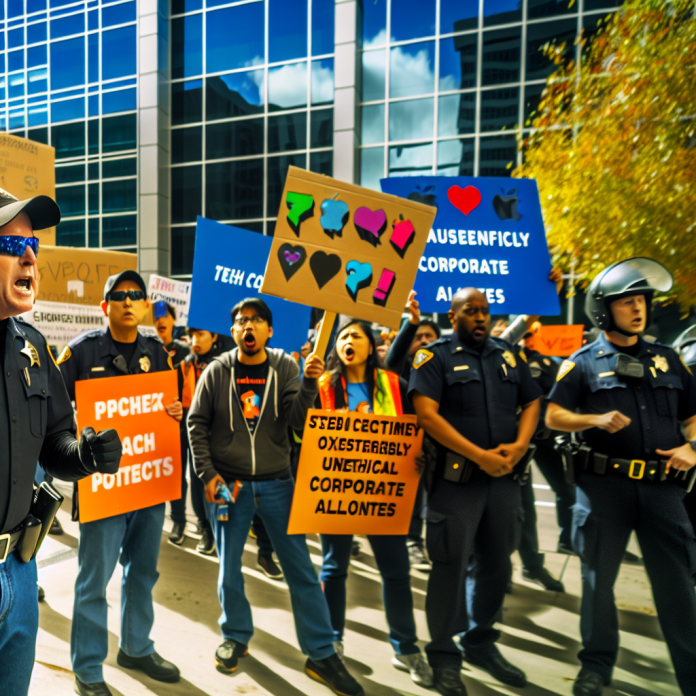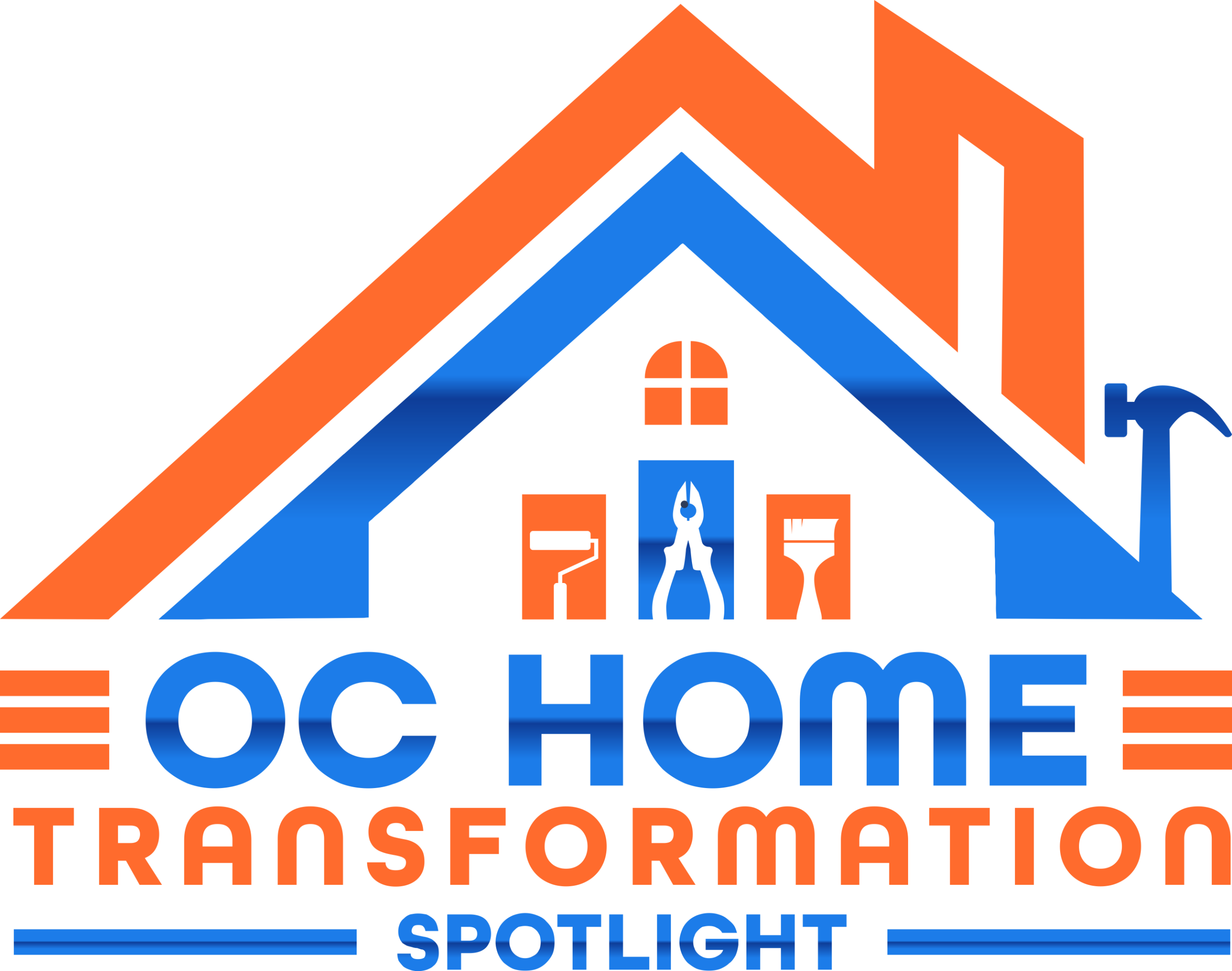Microsoft employee protests have erupted with mounting intensity as workers express their outrage over the company’s collaboration with Israel’s military technology, particularly through Microsoft Azure. The public outcry reached a peak when 18 protesters were arrested during demonstrations at the tech giant’s headquarters in Redmond, Washington. Members of the “No Azure for Apartheid” group argue that Microsoft’s technology is being used for surveillance and military actions amidst the ongoing Gaza conflict. The protests reflect a broader discontent with corporate ties to controversial military operations, and calls for a reevaluation of Microsoft’s business practices have grown louder. While the company has promised a review, many employees feel it is an inadequate response to the ethical implications surrounding their work with Israel.
Recently, demonstrations by Microsoft staff have gained significant media attention as a response to the company’s involvement with military operations abroad. These worker-led protests, challenging the ethical dimensions of Microsoft’s technological contributions, particularly focus on the conflicts involving Israel and Gaza. The employees’ demands echo sentiments against the use of corporate resources for military purposes and highlight a desire for transparency and accountability within the tech industry. As pressure mounts on Microsoft, the discussions around civilian rights intersect with corporate responsibilities, showcasing the critical role technology companies play in geopolitical affairs. The growing unrest signifies a shift in how workers perceive their company’s operational ethics in light of global humanitarian issues.
Understanding the Dynamics of Microsoft Employee Protests
The recent protests by Microsoft employees reflect a growing concern over the ethical implications of corporate partnerships with military entities, particularly those involved in international conflicts. The protests have been particularly intense regarding Microsoft’s work with Israel, especially with its Azure platform being implicated in the Israel military’s operations. The movement led by the No Azure for Apartheid group highlights the urgent need for corporations to address their roles in global conflicts and the technology they provide. As employees rally together, they seek to demonstrate that corporate social responsibility must include a commitment to human rights and ethical usage of technology.
In the context of these protests, it is imperative to understand the ramifications of such corporate engagements with military forces. Microsoft’s technologies are designed to enhance communication and data storage, but their applications can also be weaponized for surveillance and conflict purposes. The protests at Microsoft not only reflect employee dissatisfaction but also signify a shift in autonomous worker activism, where individuals feel empowered to take a stand against perceived injustices. This underlines a crucial dialogue in the tech industry about how products like Azure can be harnessed, and who truly benefits from their deployment.
The Role of Azure in Conflict: Investigating Military Applications
Microsoft Azure has come under scrutiny for its reported use by the Israeli Defense Forces, especially in relation to the Gaza conflict technology. Allegations suggest that Azure is utilized for mass surveillance, which raises significant ethical concerns about the company’s responsibilities. Cloud platforms designed for efficiency and innovation have now entered into the realm of national security and conflict, illuminating a stark contrast between typical corporate values and the ethical dilemmas posed in wartime scenarios. The potential applications of Azure in military actions illustrate the thin line technology companies must navigate when striking partnerships with governments engaged in conflict.
These developments have prompted Microsoft to conduct an internal review after allegations surfaced regarding the military’s use of its technology. Despite the company’s assertion that its standard terms of service prohibit such applications, the urgent reviews underscore a pressing need for transparency. As protests grow, both externally and internally, the necessity for accountability escalates. Questions regarding Microsoft’s oversight and ethical considerations in its partnerships with military bodies are becoming critical topics that demand answers. The situation exemplifies the intersection of technology and ethics, as activists push for a reassessment of corporate alliances with military operations.
The Significance of the No Azure for Apartheid Movement
The No Azure for Apartheid movement stands as a powerful example of how tech employees can mobilize against corporate actions that contradict their ethical beliefs. This group has emerged in response to concerns about Microsoft’s involvement with the Israeli military and the broader implications for the Palestinian population. The movement has galvanized support, not just from Microsoft workers, but also from wider communities advocating for humane treatment and respect for human rights. By exerting pressure through public protests and calls for corporate accountability, the movement harnesses collective power in demanding change.
Furthermore, the protests signal to other companies within the tech industry that employee advocacy is rising, and silence on matters of human rights may no longer be tolerable. The slogan ‘No Azure for Apartheid’ encapsulates a strong message that resonates with many who view partnerships with oppressive regimes as incompatible with progressive corporate values. This movement not only challenges Microsoft but also invites similar organizations to reevaluate their own policies and partnerships. In a world where technology increasingly shapes social landscapes, accountability in corporate practice becomes essential.
Impacts of Arrests During Microsoft Campus Protests
The police arrests during the Microsoft protests reflect the escalating tension between corporations and activists advocating for social justice. With 18 individuals detained for trespassing and other charges, these actions highlight the risks associated with activist movements vying for corporate accountability. The arrests could signify a crackdown on dissenting voices, which may inhibit future protests. However, they also may galvanize supporters who view these arrests as further evidence of the necessity for change within corporate structures and their engagement in international conflicts.
Such incidents not only impact the individuals involved but also ripple through the company’s workforce, prompting discussions about rights to protest and the ethics behind corporate partnerships. Moreover, arrests may draw national media attention, increasing awareness around issues such as the Gaza conflict technology and how firms like Microsoft are linked to it. By centralizing conversations about human rights and corporate transparency, the protests’ fallout can lead to heightened scrutiny and possibly influence Microsoft’s practices, making it essential to examine the long-term consequences of these confrontations.
The Call for Transparency and Accountability in Corporate Practices
In light of recent protests and allegations regarding Microsoft’s involvement with military applications of its technology, there is a growing demand for transparency in corporate practices. Employees and activists alike are calling for companies to not only disclose their partnerships but to also establish clear ethical guidelines that prevent complicity in conflicts. As technology continues to serve various sectors, it becomes imperative to create standards that assure users that their tools and services are being utilized for positive, life-affirming purposes rather than aiding oppressive regimes.
Microsoft’s current handling of this situation is a critical test case for the tech industry at large. With the push for urgent reviews and the impact of citizen-led movements, stakeholders are increasingly expecting accountability. Clarity regarding the findings of the internal investigations is not just anticipated by protesters; it’s expected by consumers who are concerned about the implications of technology ethics in warfare and surveillance. Ultimately, the call for accountability reflects a broader societal demand for ethical corporate behavior in an increasingly interconnected world.
Reflections on Worker Activism in the Tech Sector
The strength of worker activism in the tech sector is evident through movements like the protests at Microsoft, where employees have taken strong and public stances against corporate policies they deem unethical. This wave of activism has emerged alongside heightened awareness of social justice issues globally, with tech workers increasingly willing to leverage their influence in corporate governance. By standing against actions that contribute to international conflicts, employees are redefining what it means to work in the tech industry, pushing for a culture that aligns with values of justice and equity.
Moreover, these activist movements are not isolated incidents; they reflect a growing trend in various industries for employees to speak out against practices they believe to be harmful. The participation in protests and the organization of groups like No Azure for Apartheid symbolizes a shift towards collective empowerment in addressing systemic issues within corporations. As activism takes root within tech companies, it raises the question of how corporate policies will adapt to address these burgeoning demands, ultimately shaping the future of labor relations in the digital age.
Navigating Corporate Ethics in Times of Conflict
The intersection of corporate ethics and military engagement poses complex challenges for technology firms like Microsoft. As companies are increasingly scrutinized for their relationships with military organizations, it becomes essential to navigate these waters carefully. Workers advocating for ethical practices are a vital force in ensuring that corporations recognize their roles in geopolitical conflicts, leading to a reevaluation of how technologies like Azure are applied in sensitive contexts, particularly those involving human rights and military actions.
In navigating these ethics, companies must balance profit motives with the social responsibilities they hold towards communities affected by their products. Tech corporations like Microsoft find themselves in a pivotal position where their advancements can either contribute positively to society or exacerbate conflicts. The ongoing protests remind companies that they must carefully align their operational objectives with fundamental ethical considerations, ensuring that their technologies are not contributing to conflict and suffering, particularly as seen in the Israeli-Palestinian context.
The Future of Microsoft’s Partnerships with Israel and Beyond
The future of Microsoft’s partnerships with Israel and its engagement in military contracts remains uncertain, especially in light of the ongoing protests and calls for accountability. As the No Azure for Apartheid movement gains traction, Microsoft may face increased pressure to reevaluate and potentially sever ties with military organizations involved in conflicts. This could not only influence Microsoft’s operations but also set a precedent for other technology companies grappling with similar ethical dilemmas regarding their products and clients.
Looking ahead, the potential for transformative change hinges on the outcomes of the promised reviews and how Microsoft responds to the demands of its employees and the broader community. If the company takes decisive action to align with ethical practices and human rights advocacy, it could reshape the landscape of corporate partnerships with military institutions. By prioritizing integrity and accountability, Microsoft could lead the charge for a tech sector that not only embraces innovation but also champions social justice as a foundational principle.
Frequently Asked Questions
What are the reasons behind the Microsoft employee protests regarding Israel’s military technology?
Microsoft employee protests, particularly those led by the No Azure for Apartheid group, stem from allegations that the company supplies technology used by the Israeli military for surveillance and military operations against Palestinians in Gaza. The protests seek to hold Microsoft accountable for these practices, urging the company to terminate its contracts that support Israel’s military actions.
How many arrests were made during the Microsoft employee protests?
During the Microsoft employee protests, 18 individuals were arrested by police for various charges, including trespassing and resisting arrest. The protests were organized in response to Microsoft’s alleged involvement in military technology utilized by Israel.
What actions did Microsoft take in response to the employee protests?
In response to the protests, Microsoft announced an urgent review of the allegations concerning its Azure cloud services being used by the Israeli military. The company engaged a law firm to investigate these claims, while maintaining that its standard service terms prohibit harmful military applications.
What is the No Azure for Apartheid group advocating for?
The No Azure for Apartheid group advocates for an immediate cessation of Microsoft’s business ties with Israel, organizing protests to highlight concerns that the technology provided to the Israeli military contributes to violations of human rights against Palestinians during conflicts in Gaza.
What kind of technology is Microsoft accused of providing to the Israeli military?
Microsoft is accused of providing cloud computing technology through its Azure platform, which is allegedly used by the Israeli military for intelligence operations, including surveillance activities that impact Palestinian civilians during the Gaza conflict.
How did Microsoft respond to allegations about the use of its technology in military operations?
Microsoft stated that it is conducting a thorough review of the allegations that its technology, particularly Azure, was used by the Israeli military for surveillance. The company has claimed that its service terms prohibit such usage, and it is committed to upholding human rights standards.
What were the slogans used during the Microsoft employee protests?
Protesters at Microsoft have employed slogans like ‘No Azure for Apartheid’ and have called for a ‘worker intifada,’ invoking historical Palestinian uprisings, to express their opposition to the company’s role in supplying technology to the Israeli military.
What was the outcome of the protests at Microsoft headquarters?
The protests led to confrontations with law enforcement resulting in 18 arrests due to protests escalating from acts of civil disobedience, including the use of red paint to symbolize bloodshed, after Microsoft indicated that attendees were trespassing.
Why are Microsoft employees particularly concerned about their company’s involvement in military technology?
Microsoft employees are concerned that their company’s involvement in military technology, such as Azure services used by the Israeli military, contributes to humanitarian crises and violations of rights in Gaza, prompting ethical implications that provoke their protests.
What are the broader implications of the Microsoft employee protests?
The Microsoft employee protests signify a growing trend among tech workers demanding corporate accountability and ethical practices regarding military contracts, particularly in contexts involving allegations of human rights violations, which could influence corporate policies and industry standards.
| Key Points | Details |
|---|---|
| Protests at Microsoft Headquarters | Continued protests by employees against Microsoft’s involvement with the Israeli military. |
| Arrests Made | 18 protesters arrested during worker-led protests on August 20, 2025. |
| Allegations of Military Usage | Microsoft’s technology allegedly used for surveillance and intelligence gathering by Israeli forces. |
| Employee Response | The No Azure for Apartheid group has been leading protests against contract with Israeli military. |
| Company’s Statement | Microsoft began an urgent review of the allegations and stated it would uphold human rights standards. |
| Escalation of Protests | Protesters are calling for immediate cessation of business ties with Israel. |
Summary
Microsoft employee protests have intensified recently, highlighting significant concerns regarding the company’s involvement with the Israeli military. After a series of protests at Microsoft headquarters, law enforcement arrested 18 individuals amid calls from the No Azure for Apartheid group for the company to terminate its contracts with Israel. These protests underscore the growing discontent among employees regarding the ethical implications of Microsoft’s technology being used in military operations against Palestinians. As the company promises a thorough review of its relationships and practices, the situation calls for greater accountability and transparency to address the serious concerns raised by its employees and the broader public.
Source: https://www.ocregister.com/2025/08/20/mideast-wars-gaza-microsoft/
# Orange County Home Transformation: A Guide for Local Contractors and Homeowners
## Embrace the Luxury of OC Remodeling
Orange County is renowned for its stunning coastal cities like Newport Beach and Laguna Beach, which not only offer breathtaking views but also present a vibrant market for home renovations. With a median home value of $1.18M, affluent homeowners in cities like Irvine and Costa Mesa are increasingly seeking high-value renovations ranging from $50,000 to $500,000. For contractors, the OC market represents a lucrative opportunity to cater to these discerning clients who prioritize quality and aesthetic appeal.
## Understanding California’s Building Codes for Your Next Remodeling Project
As you embark on any home transformation in Orange County, it’s crucial to familiarize yourself with California’s building codes and local permit requirements. Homeowners must ensure that their projects comply with regulations set forth by the California Department of Building and Safety, especially in environmentally sensitive areas like Laguna Beach. For contractors, being well-versed in these codes not only enhances your credibility but also expedites the renovation process, ensuring a higher success rate and satisfied clients.
## Seasonal Considerations for OC Remodeling Projects
Given Orange County’s Mediterranean climate, planning construction projects around seasonal weather patterns can significantly influence a renovation’s success. For instance, during the warmer months, outdoor remodeling projects like patio expansions or exterior upgrades become more favorable. Contractors can highlight this seasonal advantage by proposing timely renovations that take full benefit of the OC climate, thus appealing to homeowners eager to enjoy their upgraded spaces year-round.
## Utilizing Local Suppliers to Elevate Your Remodeling Offerings
Engaging with local suppliers in Orange County not only enhances the quality of materials used in renovations but also supports the local economy. Whether it’s sourcing premium tiles from Costa Mesa or custom cabinetry from nearby workshops, contractors have a multitude of options at their disposal. By establishing partnerships with these suppliers, contractors can provide unique, high-end finishes that resonate with the affluent homeowners in the area, thus setting their services apart in a competitive market.
## Call to Action: Connect with Your OC Community
Homeowners in Orange County are ready to invest in transformative renovations that reflect their unique lifestyles and tastes. As a local contractor, seize the opportunity to showcase your expertise in the OC remodeling landscape. From leveraging seasonal advantages to maintaining compliance with local building codes, your skills are invaluable. Engage with your community, promote your services, and inspire clients to transform their homes into stunning showcases that not only enhance their quality of life but also add significant value to their properties.


